The future of Qualcomm: Performance, efficiency, and connectivity
Learn what the future holds for Qualcomm
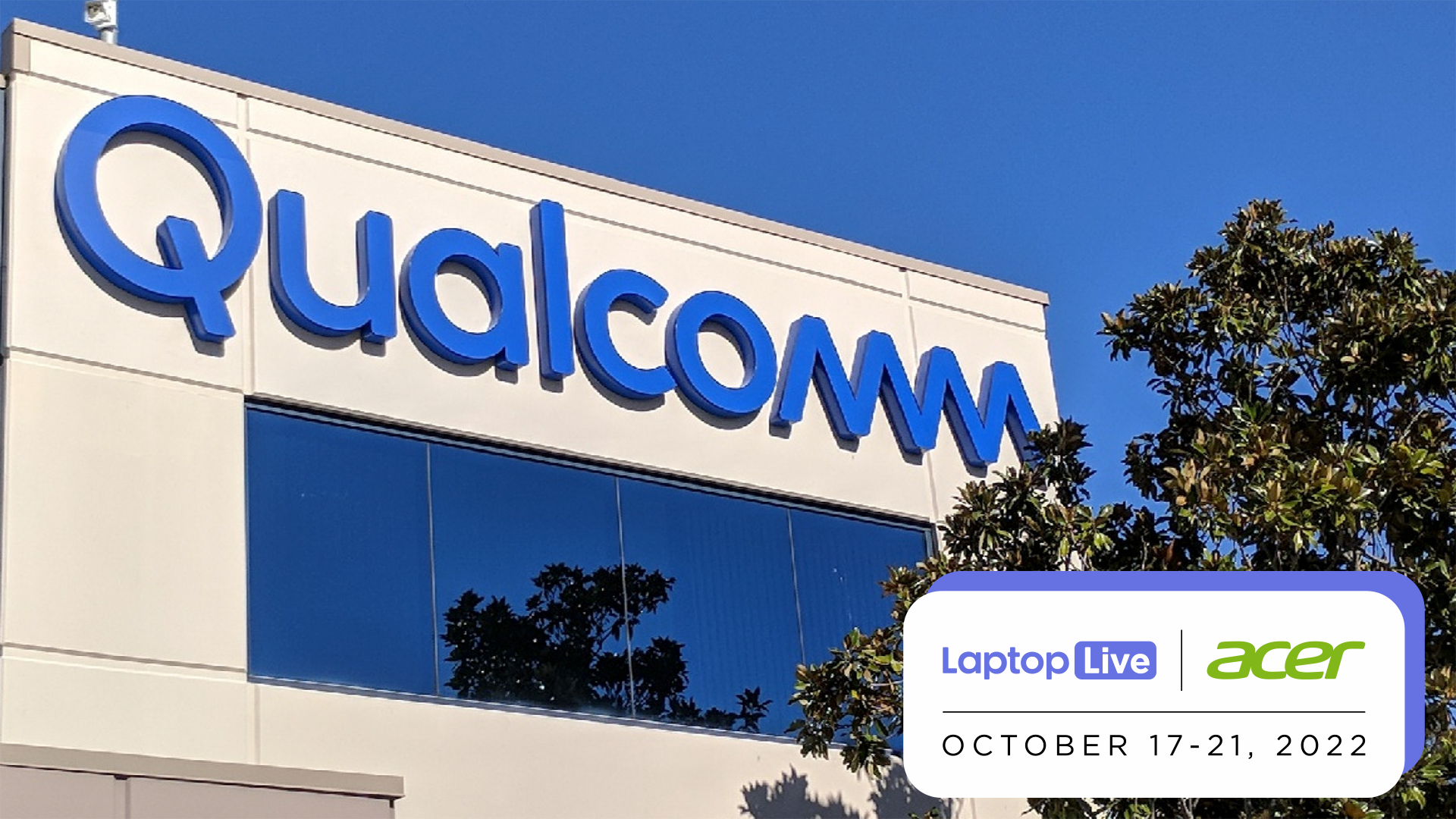
Sign up to receive The Snapshot, a free special dispatch from Laptop Mag, in your inbox.
You are now subscribed
Your newsletter sign-up was successful
If you pay attention to the premium smartphone world then you will know the name Qualcomm, it's the company responsible for the majority of the chips that you find in flagships like Samsung's Galaxy S22 Ultra or the OnePlus 10 Pro. However, that's hardly all they do, you'll find Qualcomm chips in a wide variety of devices from VR and AR headsets to laptops and even handling the connectivity in the iPhone.
The San Diego-based company has made inroads with some of its latest laptop chips and with a recent acquisition, it has aspirations to take on the likes of Apple, Intel, and AMD in the laptop realm. That's big news, but far from all that Qualcomm has planned for the future.
As part of Laptop Live, Laptop Mag’s week-long celebration of all things tech, we had the opportunity to speak to Nitin Kumar, Senior Director of Product Management for Snapdragon Chipset at Qualcomm, about the present and the future of the best-known maker of mobile chipsets.
Breaking through to laptops
Last year Qualcomm acquired Nuvia, a startup founded by former Apple employees that worked on the highly successful transition to Apple Silicon. According to a Reuters interview with Qualcomm CEO Cristiano Amon, the $1.4 billion purchase was aimed squarely at building a chip-architect team that could help Qualcomm challenge Apple in the laptop market.
This is where I started my discussion with Nitin, asking whether these Nuvia-based laptops, projected to arrive by the end of 2023, may finally be the breakthrough devices for Qualcomm in the laptop market. Nitin was quick to say yes, however, he didn't want to completely dismiss the products they have in the market already. He cited the Lenovo ThinkPad X13s, powered by the Qualcomm Snapdragon 8cx Gen 3 as a prime example of a current laptop that is receiving strong reviews for its long battery life and performance.
These are the foundational elements of any Qualcomm-powered product according to Nitin. He said that while Qualcomm got its start in smartphones, whether it be "wearables, XR technology, tablets, PCs, Chromebooks...Qualcomm's unique proposition is on providing premium performance while preserving performance per watt."
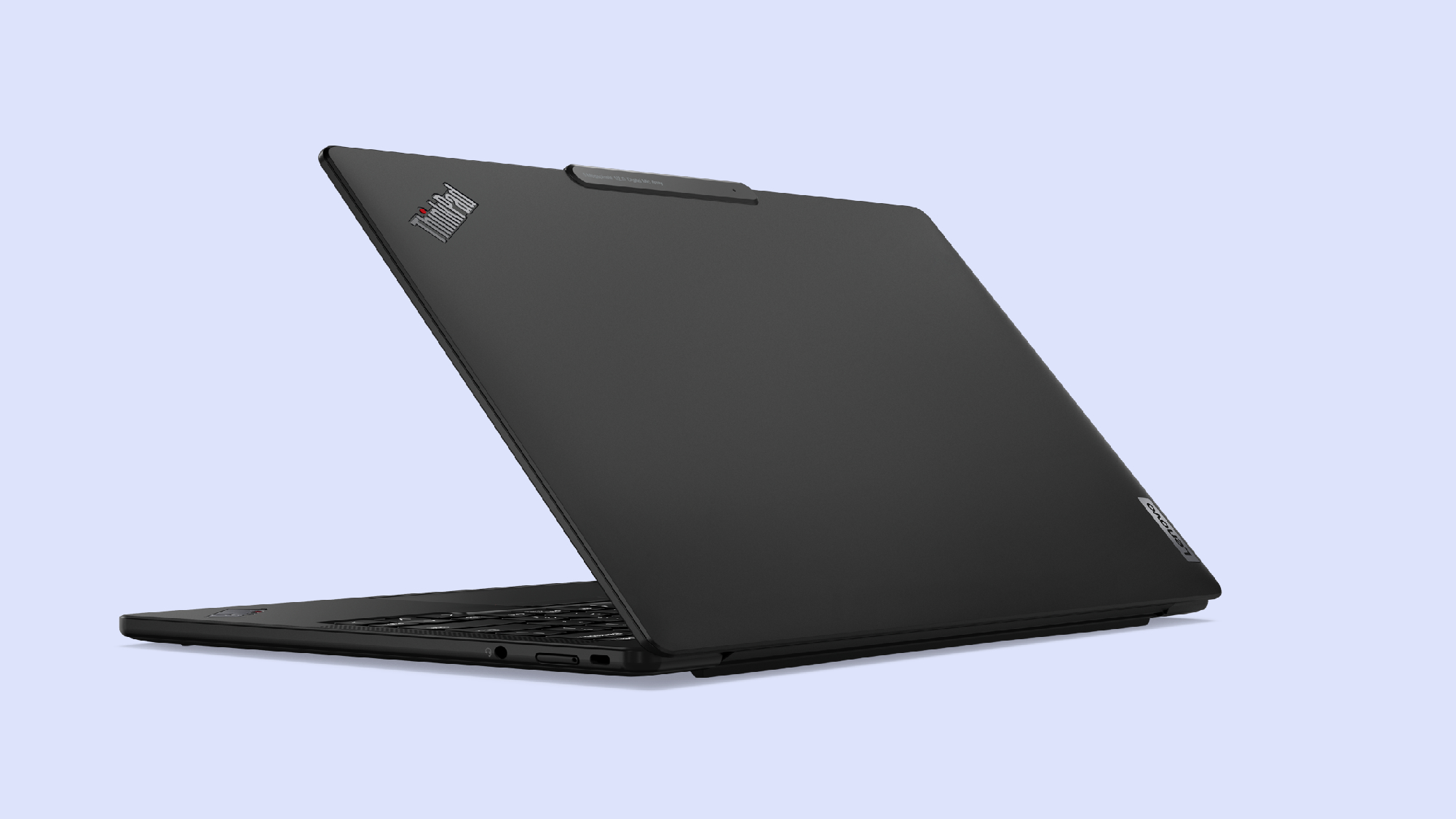
We are still in the process of reviewing the Lenovo ThinkPad X13s, so we don't have a definitive statement on its performance yet, but there's no denying the battery life with the laptop lasting over 15 hours in our Laptop Mag battery test on Wi-Fi and 13 hours and 40 minutes on a mix of Wi-Fi and cellular.
Sign up to receive The Snapshot, a free special dispatch from Laptop Mag, in your inbox.
So what's different about these new custom chips for Qualcomm? Nitin says that with the Nuvia-based chips they "plan to extend that performance level to a different experience, to provide...absolutely premium performance. But the key point being we will preserve our advantage of performance per watt, we will not give up the power angle to get higher performance."
There's no question that the battery life in concert with the stellar performance has been one of the hallmarks of Apple Silicon since its launch in 2020 as well, so Qualcomm has the right strategy, but time will tell how it manages that balancing act with these next-generation custom chips.
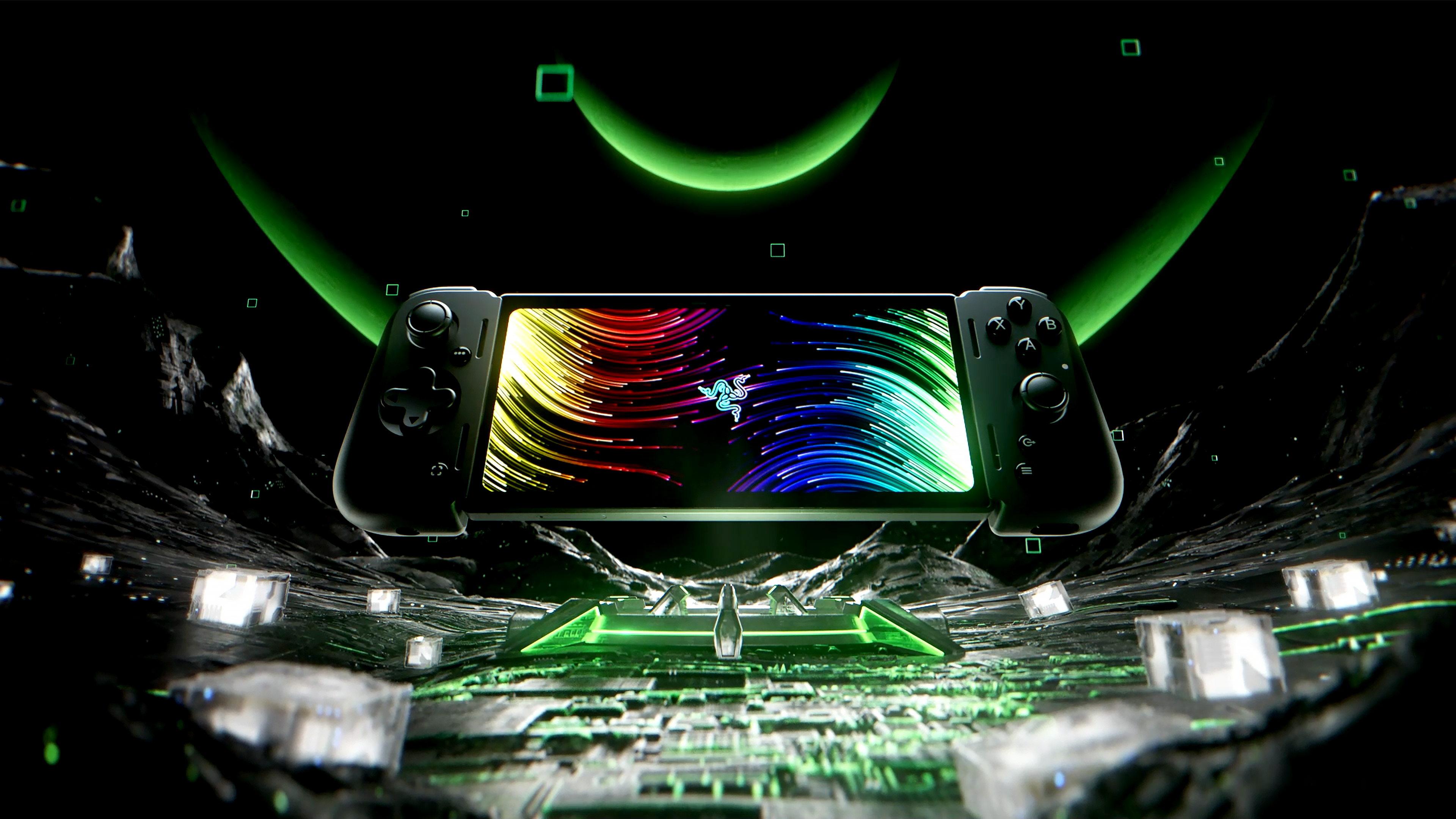
Is it game on for Qualcomm?
With Qualcomm's higher performance aspirations in mind, we moved on to talking about gaming on Qualcomm-powered laptops. Nitin pointed to the company's experience in delivering premium gaming on smartphones as the path to similar success on the laptop side. Qualcomm delivers premium gaming experiences on phones by not only addressing the hardware challenge with advanced graphics capabilities at the SoC level but also through "partnerships with middleware people, engine people, and game developers to optimize and utilize the best of what the game and Snapdragon has to offer."
Nitin also pointed once again to Qualcomm's strong power management as potentially unlocking higher levels of performance. While game performance can be hampered by the CPU pushing the power envelope for a laptop, "Qualcomm's custom core implementation will provide that CPU performance at a much lower power. So you can see that higher power is available for graphics to provide that high-quality rendering experience." If Qualcomm can manage to work with AAA game developers to optimize for the new custom core, it's certainly a compelling argument that a Qualcomm-powered gaming laptop isn't out of the question.
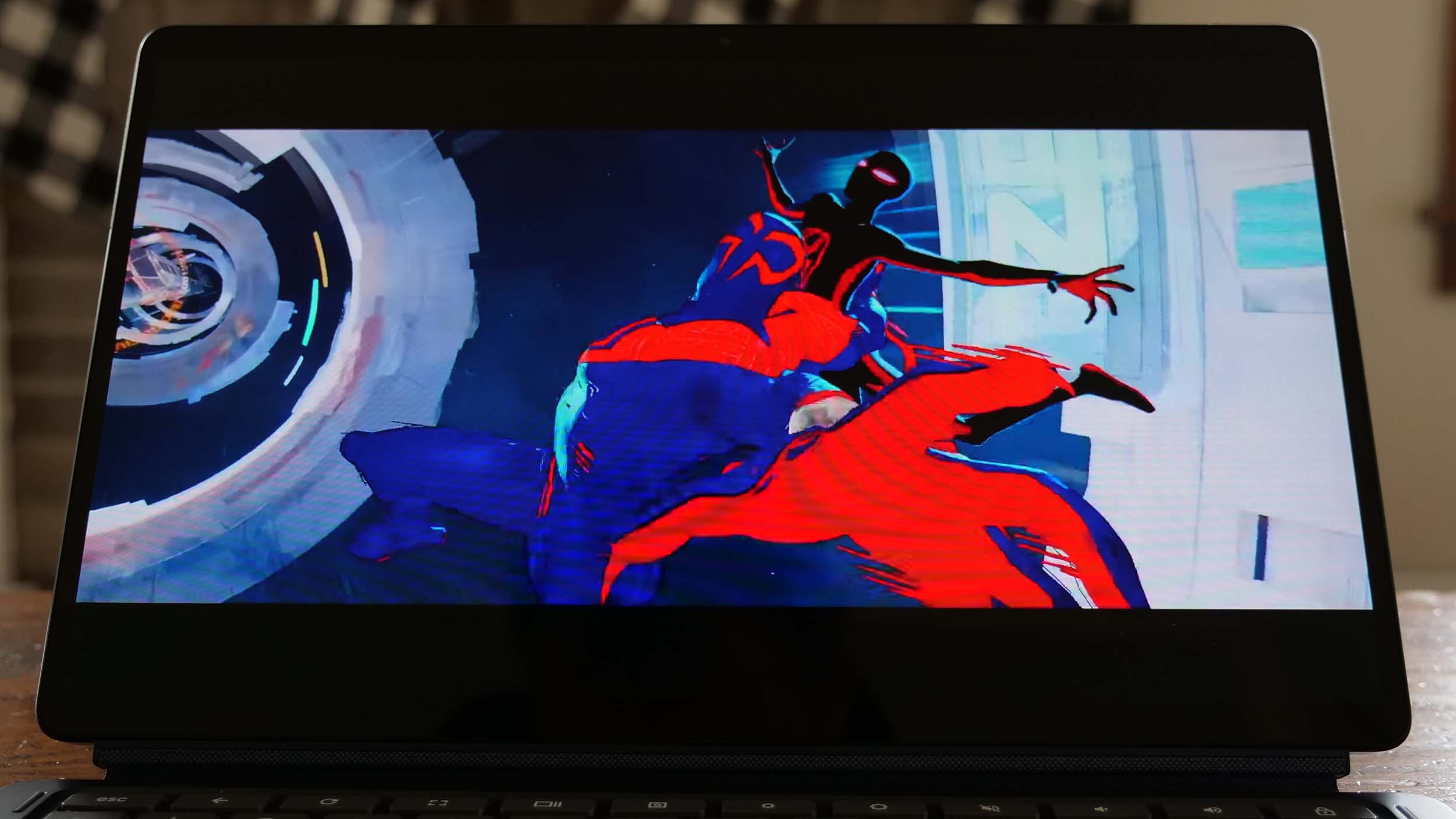
While Nitin makes a solid case for on-device gaming on a Qualcomm laptop in the future, I also asked whether at some point we may view the level of hardware needed for AAA gaming on a laptop to be obviated by cloud gaming. Devices like gaming Chromebooks or the recent proliferation of cloud-gaming focused handheld devices like the Logitech G Cloud and Razer Edge 5G (both powered by Snapdragon processors) suggest that at least some buyers may be willing to forgo the beefy gaming laptop for a lighter cloud-based solution.
Nitin doesn't view it as an either-or proposition and believes that Snapdragon can offer the best of both worlds. On one side you have the company's investments in 5G and Wi-Fi technologies that can drive the much lower latency needed for a high-end cloud gaming experience. However, even with nearly imperceptible latency Nitin still believes that "certain games and applications will run locally, and that will require being fully optimized to leverage the architecture on the device."
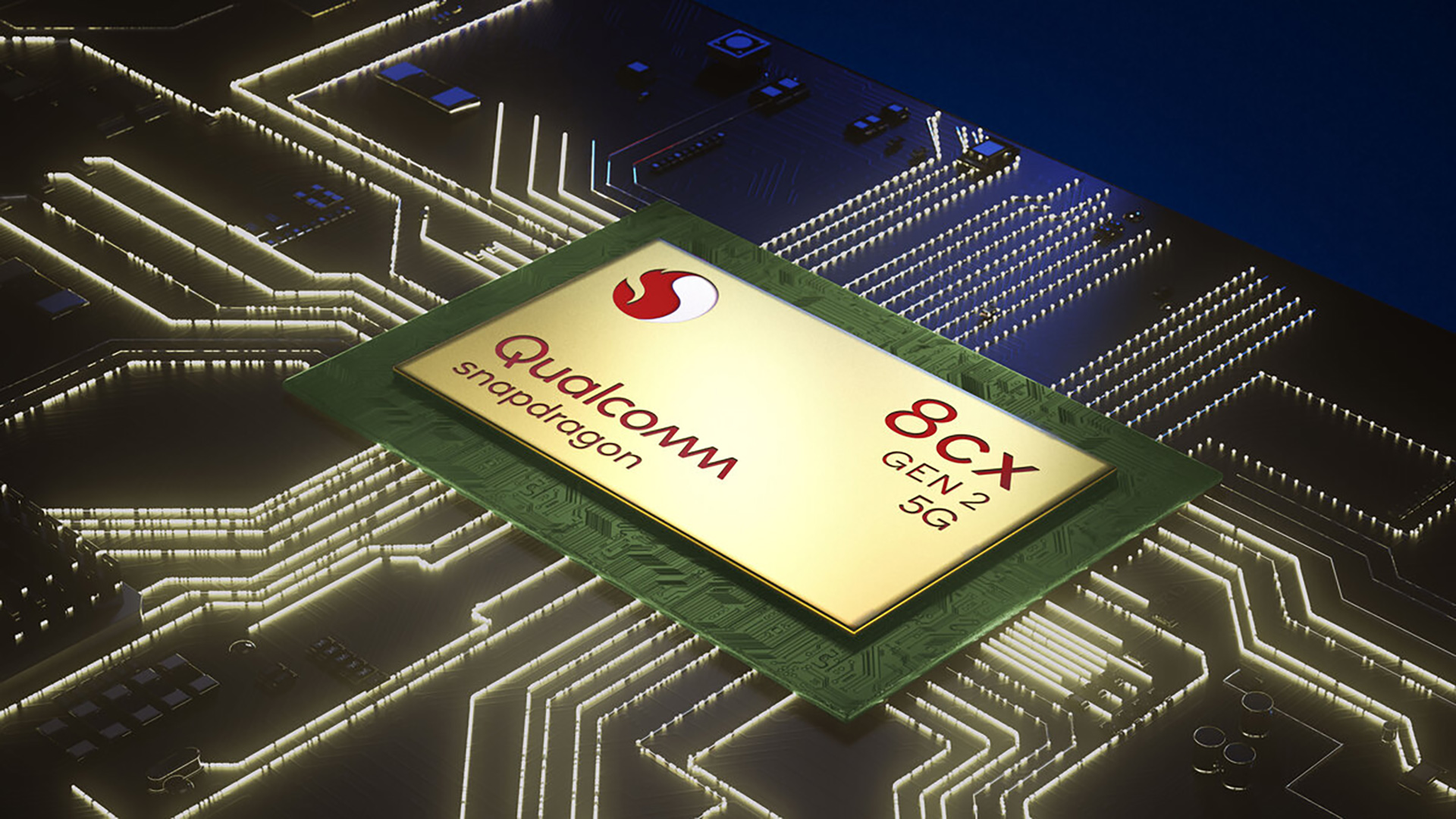
A more connected future for laptops
We touched on it briefly during our discussion of cloud gaming, but following up on 5G connectivity I asked whether Nitin foresaw a tipping point where cellular connectivity in a laptop became a more mainstream consumer feature, rather than something we typically only see in business laptops.
Unsurprisingly, given that this is an area that Qualcomm often stresses, Nitin was quick to say that it is his "view that it will become a standard feature." On the consumer side, that may be driven by the desire to know "that seamless connection will always be there." Nitin points out that consumers are conditioned for this with their phones, so it's not much of a leap to expect that same behavior out of a laptop. Now don't hold your breath for this, Nitin was clear that he wasn't sure whether this was something that would happen in three or even five years' time, but a longer-term inevitability.
On the enterprise side, he sees the desire for cellular connectivity being driven by a strong desire for security. We see new threats emerging online almost daily and while there are myriad attack vectors, eliminating the need for your employees to ever connect to open or minimally protected Wi-Fi networks is undeniably safer.
The future of AI in laptops
In the smartphone world, we have seen a significant shift to focus on AI and machine learning (ML) capabilities in recent years. I asked Nitin if we should expect a similar trajectory on laptops.
Nitin once again pointed to the Lenovo ThinkPad X13s that he was using and said he believes it is possibly the most AI-capable laptop that exists today. Just as we have seen in smartphones, AI and ML will open up new experiences in laptops that may have seemed computationally impossible in the past. He said that one of the keys to this is the software stack that they have designed on top of the hardware that allows applications to make the most intelligent use of AI, CPU, or GPU as the case may be.
Returning to a familiar refrain throughout our interview, Nitin said "the absolute key is that all of this is done in a low power environment and that's where the benefit of all of this hardware, Qualcomm's technology come into the picture. AI will drive a lot of unique experiences by preserving that multi-day battery life, by not just burning your laptop in a couple of hours...we are providing all of this capability but staying in a low-power environment."
While we covered a lot of ground here, the main takeaways from my interview with Nitin were pretty clear. The performance, power efficiency, and connectivity inherent to Qualcomm's chips are a potent combination and make the company a formidable challenger as we look to the future of laptops.
Sean Riley has been covering tech professionally for over a decade now. Most of that time was as a freelancer covering varied topics including phones, wearables, tablets, smart home devices, laptops, AR, VR, mobile payments, fintech, and more. Sean is the resident mobile expert at Laptop Mag, specializing in phones and wearables, you'll find plenty of news, reviews, how-to, and opinion pieces on these subjects from him here. But Laptop Mag has also proven a perfect fit for that broad range of interests with reviews and news on the latest laptops, VR games, and computer accessories along with coverage on everything from NFTs to cybersecurity and more.

